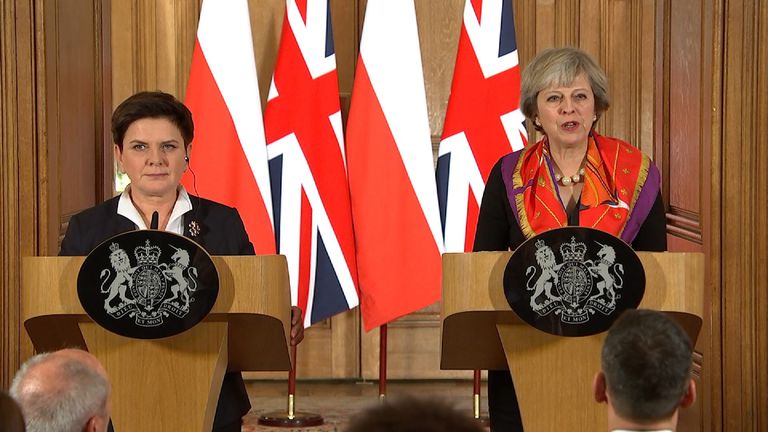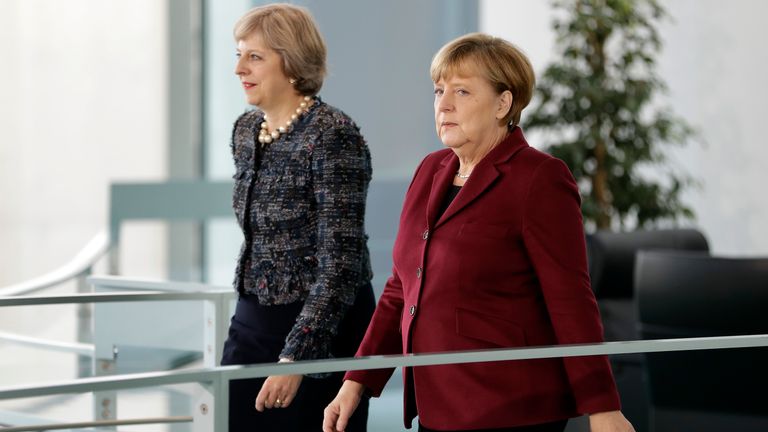Don't use expats as Brexit 'bargaining chips', says EU chief Donald Tusk
The comments came as Angela Merkel said she would not discuss the post-Brexit fate of Britons in the EU until Article 50 starts.
Tuesday 29 November 2016 19:11, UK
Donald Tusk has responded icily to pressure from UK MPs on Brussels to begin talks about the status of EU citizens post-referendum, blaming Brexit and the British Government dragging its feet over Article 50.
In a reply to a letter from 80 MPs, the President of the European Council suggested the parliamentarians were being hypocritical given the insistence of the Government to reject freedom of movement.
Of the argument that the European Commission was creating uncertainty, Mr Tusk wrote: "It is a very interesting argument, the only problem being that it has nothing to do with reality", suggesting that the "only source of anxiety and uncertainty" is the Brexit decision.
He added that the only way to dispel that uncertainty would be to immediately trigger Article 50, and that the European Council would have been ready from 24 June, the day after the vote.
He said the only way to avoid citizens becoming "bargaining chips" is "precise and comprehensive solutions" rather than "nice-sounding expressions".
:: May: UK to be 'even closer' to Poland after Brexit
It came after Angela Merkel rejected an approach by Theresa May's team to try to settle early the thorny issue of the post-Brexit status of EU citizens in the UK and British citizens across the EU.
The German Chancellor would not discuss the issue or indeed any other element of the Brexit deal at a recent meeting in Berlin, under the EU's mantra of "no notification, no negotiation".
The informal approach might have taken the issue of EU citizens' status off the table as early as the December EU summit, providing certainty to hundreds of thousands of workers.
But Mrs Merkel made it clear that the fate of the 1.2 million Britons living in other EU countries and the 3.3 million EU citizens in the UK would not be discussed until the UK Government triggers Article 50 - the formal divorce proceedings.
At a meeting with Polish Prime Minister Beata Szydlo in Downing Street on Monday, the Prime Minister said she wanted an "early deal" on these rights.
:: European Court of Justice has 'ultimate authority' on Article 50
Ms Szydlo wrote that EU citizens should not be "hostages" in the Brexit negotiation - words aimed more at Berlin than London.
Mrs May's approach not to guarantee EU worker's rights until reciprocity is offered, which she made clear at the start of the Conservative leadership campaign, appears to have been vindicated.
Her Conservative conference speech suggesting only after Brexit would the UK be a "fully independent sovereign country" did not win diplomatic goodwill in Berlin.
The PM's hopes that naming a date for Article 50 would lead to preparatory Brexit talks have also been dashed, so far.






